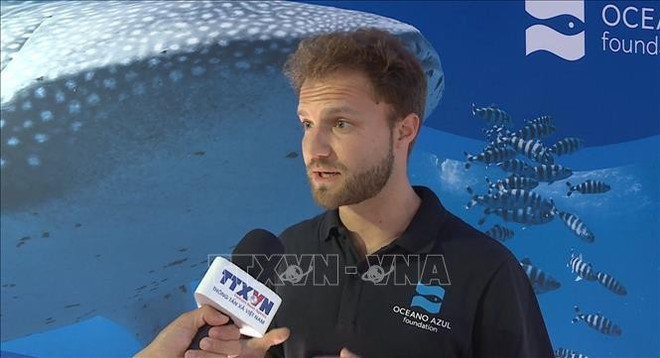Expert Louis Lambrechts on international ocean advocacy at the Oceano Azul Foundation stated Vietnam is a country with vast marine areas and a thriving fishing industry, which enable it to grow further.

The specialist emphasised the need to establish marine protected areas, as creating marine protected areas, especially one with a high level of protection, serves as a reserve that allows fish populations to recover and then spread to other marine areas of Vietnam. As a result, fishing activities will improve, even if the volume of fish caught initially decreases. But this brings abrout two key benefits. First, it helps restore the marine environment, which is highly beneficial for tourism, such as developing scuba diving or sea-based tourism. Second, it clearly benefits the fishing industry, especially small-scale or coastal fisheries, which rely on healthy fish stocks to thrive, Lambrechts stated.
Bruno Bodard, Director General of the Most Beautiful Bays in the World Club (World-Bays Club), who frequently engages in business cooperation activities in Vietnam, highlighted the need for Vietnam to build a sustainable blue economy. He encouraged Vietnam to continue efforts in preserving and promoting the value of its coastlines and natural resources.
Isabelle Milhomme from the non-governmental organisation Objectif Sciences International (OSI), said that countries still boasting development potential like Vietnam are fortunate to possess an important traditional fishing industry, and potentially a fast-growing sustainable tourism sector, which, she suggested, should be preserved and maintained over the long term.
She also advised Vietnam to strengthen environmental protection regulations, move toward a regenerative economy, and encourage greater public participation, so that everyone can contribute to this regenerative economy.
Sharing a similar perspective with Milhomme, João Rito, a biologist, guest professor at the Polytechnic University of Leiria, and founder and CEO of SEAentia - a startup focusing on sustainable aquaculture based in Peniche, Portugal, stressed the importance of protecting oceans by establishing strictly protected areas.
This will allow countries to further develop the fisheries sector, particularly sustainable fisheries, and at the same time enable tourism to grow more effectively by improving the quality of activities. It will also allow people to enjoy the beaches safely and interact respectfully with surrounding marine life, he said.
In Vietnam, aquaculture is highly developed, and related practices can be further improved, for example, by reducing the use of antibiotics, minimising pollution and waste discharge into the sea, including wastewater containing microplastics and other pollutants, he stated, adding that nowadays, many new technologies can be applied, such as sensors that help ensure the welfare of farmed species while also protecting the environment where aquaculture takes place./.VNA